Data journalism’s social future

Twelve renowned journalists from Latin America and Germany are coming together to explore the future of data journalism. Under the motto “Public Data Goes Social”, the journalists and open data experts will meet for three days in Buenos Aires to discuss the most burning issues in the booming field of data journalism.
The talks are part of a Media Dialogue organized by DW Akademie and supported by Germany’s Federal Foreign Office. You can follow the event, which runs from 13-15 November, on Twitter via @dw akademie and the hashtag #mdba.
There is a thriving community of data journalists in Germany and Latin America and the two regions are building a reputation for innovations in the field. Read more for a short introduction to the Media Dialogue participants.
![]() read more
read more
Interactive and social media documenting Australian bushfires
 The extensive bushfires in the Australian state of New South Wales have made global headlines in the past week.
The extensive bushfires in the Australian state of New South Wales have made global headlines in the past week.
Social media, particularly via the Twitter hashtag #nswfires, is serving as a way for media and emergency services to post updates, but also for users in fire affected areas to document and share information, experiences and photos.
A number of bushfire photos also went viral via social media. For example this shot of exhausted firefighters resting on a road.
https://twitter.com/theage_photo/status/391186566095196160
On YouTube, this helmet camera footage posted by the Blackheath – Mt Victoria Rural Fire Brigade shows the extreme conditions firefighters are facing.
Australia’s public broadcaster, ABC, plays an important role during natural disasters and emergencies such as bushfires, to keep communities accurately informed – particularly through their local radio network.
That’s a huge media development topic to explore on its own, particularly for national media networks in developing countries seeking a model for informing and communicating with audiences during natural disasters.
For now though, what caught onMedia’s eye was the ABC’s use of tools such as Storify and ThingLink to help visualize stories on their live bushfire blog.
![]() read more
read more
Journalism at play
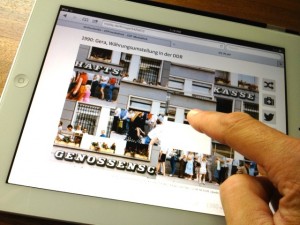 The term newsgames has been around since the early 2000s and refers to digital games, which are used in a journalistic context and have been developed with journalistic and ethical standards in mind. In contrast to traditional linear media, these games offer an interactive experience of content. Leading media houses such as the New York Times, BBC, the Guardian and Le Monde have already experimented with this storytelling format.
The term newsgames has been around since the early 2000s and refers to digital games, which are used in a journalistic context and have been developed with journalistic and ethical standards in mind. In contrast to traditional linear media, these games offer an interactive experience of content. Leading media houses such as the New York Times, BBC, the Guardian and Le Monde have already experimented with this storytelling format.
Newsgames need not be expensive and complicated to develop. In this post, Marcus Bösch, DW Akademie trainer and director of the Serious Game Studios the Good Evil, explains what you need to produce a small game based on a straightforward example.
![]() read more
read more
Innovation driven by Africans
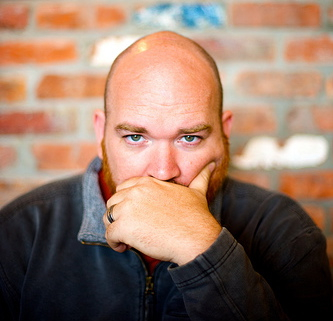 In many African countries power cuts and poor access to the internet are common. But this is just one way of looking at the continent. Another way is to explore the dynamic and confident tech start-up scene brimming with creative ideas. Erik Hersman, technology blogger and co-founder of the internationally renown crowd-sourcing platform Ushahidi, is working to better connect African innovators. In Nairobi he founded iHub – a centre supporting a thriving technology community that has inspired more hubs across Africa.
In many African countries power cuts and poor access to the internet are common. But this is just one way of looking at the continent. Another way is to explore the dynamic and confident tech start-up scene brimming with creative ideas. Erik Hersman, technology blogger and co-founder of the internationally renown crowd-sourcing platform Ushahidi, is working to better connect African innovators. In Nairobi he founded iHub – a centre supporting a thriving technology community that has inspired more hubs across Africa.
On Twitter Hersman is known as @whiteafrican – he grew up in Kenya and Sudan and these days lives in Nairobi. If you’re looking into innovation in Africa you can’t go past Hersman. He’s an expert on the technology landscape of the continent – which is completely different to Europe or the USA. At the recent German internet conference, re:publica, Hersman presented the prototype of a mobile router designed to provide an internet connection even in remote and difficult conditions. This battery powered device called BRCK can switch between ethernet, WiFi, and 3G or 4G mobile phone networks and allow up to 20 users to connect to the internet. DW Akademie’s Steffen Leidel caught up with Erik Hersman at re:publica in Berlin to talk about innovation in Africa.
![]() read more
read more
Checking the facts in Africa
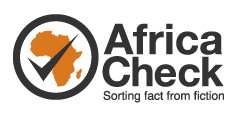 The idea of Africa Check is straightforward. Investigate claims made in public; check the facts; and, publish the findings.
The idea of Africa Check is straightforward. Investigate claims made in public; check the facts; and, publish the findings.
Africa Check was launched in 2012, and is a non-profit organisation led by the media development agency AFP Foundation and the Journalism Department of the University of the Witwatersrand in Johannesburg.
The organisation not only examines the public claims of politicians, leaders in civil society, government agencies and NGOs, but also checks the facts journalists use in their stories.
Peter Cunliffe-Jones of the AFP Foundation is the Director of Africa Check and says getting the facts right is the “essence” of journalism. But under the pressure to feed 24 hour news, and working across more topics, journalist may feel they “don’t have the time and the expertise, or even know where to look” to verify information.
Reading an Africa Check report is a little bit like a mini-lesson in the basics of journalism. You also see that this project has the potential to have a high impact on African media and perhaps serve as a model in other countries or regions.
![]() read more
read more
Ushahidi launches Uchaguzi for free, fair and peaceful elections in Kenya
Kenyans go to the polls for the country’s general elections on Monday, March 4. However, any repetition of the post-election violence that followed the 2007 elections is a major concern.
Ushahidi is an open source platform that was initially developed to map and monitor reports of violence in Kenya after the 2007 elections. Ushahidi gained a lot of attention for the innovative way it was able gather reports from citizens by SMS and the web and visualize those reports on a map. It’s since been used in countries such as DRC, India and by broadcasters such as Al Jazeera. In the lead up to this year’s election, the Ushahidi team has launched a new version: Uchaguzi – which is the Kiswahili word for elections.
If you take a closer look at the categories for reports, the events or incidences the platform will document include: pre-election, positive events, leadership, polling station issues, ballot and results, urgent, dangerous speech and security.
To find out more about Uchaguzi, DW Akademie’s Christine Harjes spoke with project leader Daudi Were.
![]() read more
read more
Drones as journalism tools
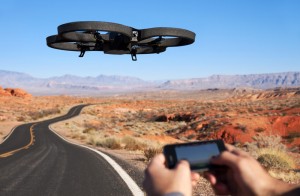 Unmanned aerial vehicles, better known as drones, have made their way out of military laboratories and into local electronics shops during the past ten years. Today, anybody can buy their own drone for as little as 300 euros. And the unmanned craft can even be used by journalists, for example, to cover protests or catastrophes.
Unmanned aerial vehicles, better known as drones, have made their way out of military laboratories and into local electronics shops during the past ten years. Today, anybody can buy their own drone for as little as 300 euros. And the unmanned craft can even be used by journalists, for example, to cover protests or catastrophes.
Marcus Bösch talks about the pros and cons of drone journalism.
![]() read more
read more
Inventive, innovative and entrepreneurial in Africa
Stories featuring the growing number of tech hubs, start-ups and co-working spaces in Africa are very prominent across international media at the moment.
Below is a round up of recent articles. But first here’s something visual to get a picture of this trend.
![]() read more
read more
Silicon Valley? The wrong place to look for innovation!
 He uses the approach which others only study theoretically and call a future model of journalism. The Frenchman Francis Pisani is an entrepreneurial journalist. He prepared for his new self-funded journalistic project for eight months: a trip around the world in search of those places where the innovative ideas of the future come into being. Pisani lived in Silicon Valley for more than 15 years reporting on new technologies. However, the 69-year-old journalist is sure that innovations of the future will come from other places throughout the world. Since September 2011, he has visited more than 30 cities on five continents, from Mexico City to Recife, Brazil, from Accra and Nairobi to Cape Town in Africa, from Cairo to Beirut and Tel Aviv. He has been in Russia, India and Indonesia.
He uses the approach which others only study theoretically and call a future model of journalism. The Frenchman Francis Pisani is an entrepreneurial journalist. He prepared for his new self-funded journalistic project for eight months: a trip around the world in search of those places where the innovative ideas of the future come into being. Pisani lived in Silicon Valley for more than 15 years reporting on new technologies. However, the 69-year-old journalist is sure that innovations of the future will come from other places throughout the world. Since September 2011, he has visited more than 30 cities on five continents, from Mexico City to Recife, Brazil, from Accra and Nairobi to Cape Town in Africa, from Cairo to Beirut and Tel Aviv. He has been in Russia, India and Indonesia.
![]() read more
read more
Tunisian blogger reflects on the Jasmine Revolution
Here in Bonn the Deutsche Welle Global Media Forum (#dw_gmf) is underway and includes the award ceremony for The BOBs – the DW International Blog Awards.
 This year’s winning blogger is Lina Ben Mhenni. The 27 year old university lecturer’s blog A Tunisian Girl was recognised for: “writing bravely about repression and censorship in Tunisia long before the international media descended on the country during the tumultuous events of December 2010 and January 2011.”
This year’s winning blogger is Lina Ben Mhenni. The 27 year old university lecturer’s blog A Tunisian Girl was recognised for: “writing bravely about repression and censorship in Tunisia long before the international media descended on the country during the tumultuous events of December 2010 and January 2011.”
Freelance DW-Akademie trainer, Sarah Mersch, spoke with Lina and asked her about the Jasmine Revolution and what changes she is now seeing in Tunisia’s media.
![]() read more
read more




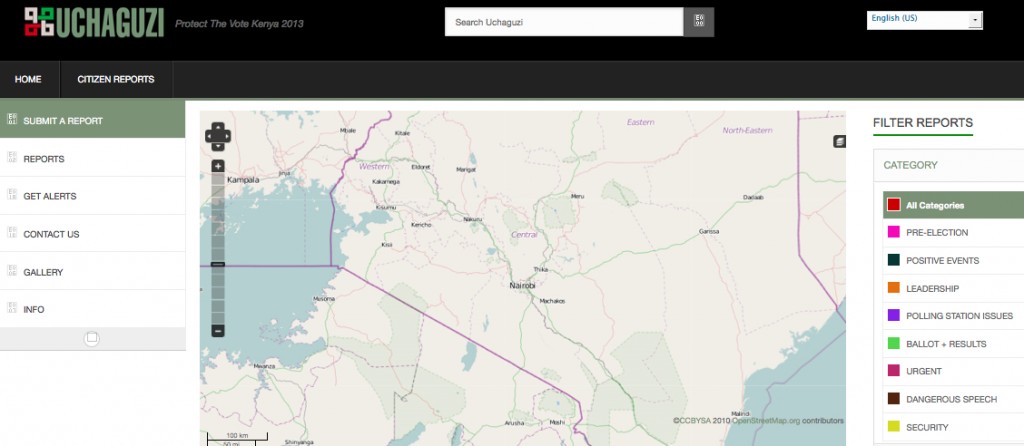





Feedback